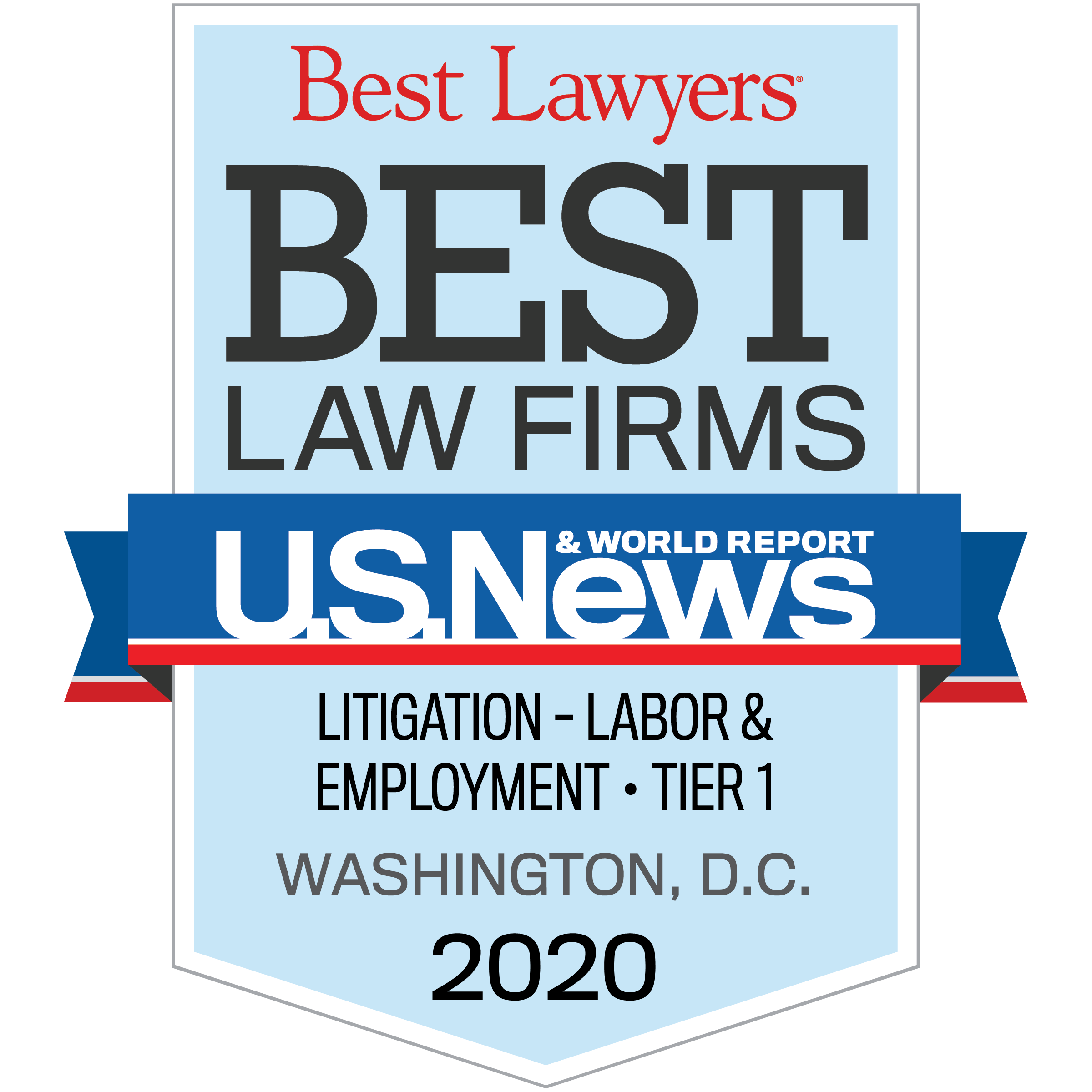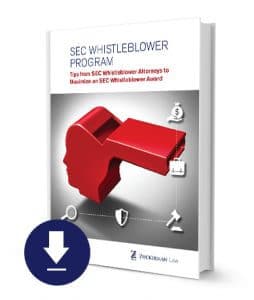What is the SEC Whistleblower Program’s Form TCR?
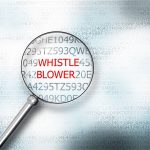 The SEC Form TCR (Tip, Complaint or Referral) is the form whistleblowers and their attorneys use to submit tips to the SEC Whistleblower Office. Under the Dodd-Frank Act’s SEC Whistleblower Program, a whistleblower who provides original information that leads to an enforcement action with total civil penalties in excess of $1 million is eligible for an award of between 10-30 percent of the total sanctions imposed.
The SEC Form TCR (Tip, Complaint or Referral) is the form whistleblowers and their attorneys use to submit tips to the SEC Whistleblower Office. Under the Dodd-Frank Act’s SEC Whistleblower Program, a whistleblower who provides original information that leads to an enforcement action with total civil penalties in excess of $1 million is eligible for an award of between 10-30 percent of the total sanctions imposed.
The TCR System is the Commission’s electronic database which records and stores information received from whistleblowers and others about potential securities law violations and records staff action taken with regard to tips, complaints, and referrals entered into the system.
Since 2011, the SEC has issued more than $2 billion in awards to whistleblowers, which includes awards to our clients totaling millions of dollars. Contact us today to find out the strategies that we have successfully employed to secure SEC whistleblower awards for our whistleblower clients.
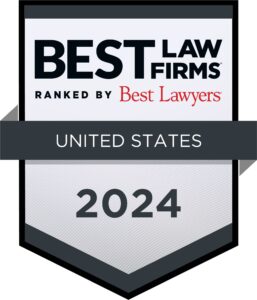 Experienced SEC whistleblower attorneys can provide critical guidance to whistleblowers throughout this process to protect their identities and increase the likelihood that they not only obtain, but maximize, their awards.
Experienced SEC whistleblower attorneys can provide critical guidance to whistleblowers throughout this process to protect their identities and increase the likelihood that they not only obtain, but maximize, their awards.
If you have original information that you would like to report to the SEC, contact the Director of our SEC whistleblower practice at [email protected] or call our leading SEC whistleblower lawyers at (202) 930-5901 or (202) 262-8959. All inquiries are confidential.






The TCR form has many sections, however, whistleblowers and their attorneys should pay close attention to following:
Section B of the SEC Form TCR
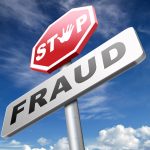 Section B requests information about the whistleblower’s attorney. This section is important because whistleblowers can submit their tip anonymously if represented by an attorney and leave Section A blank. This is a critical improvement for the SEC Whistleblower Program as other whistleblower programs do not offer anonymous reporting, such as the IRS Whistleblower Program.
Section B requests information about the whistleblower’s attorney. This section is important because whistleblowers can submit their tip anonymously if represented by an attorney and leave Section A blank. This is a critical improvement for the SEC Whistleblower Program as other whistleblower programs do not offer anonymous reporting, such as the IRS Whistleblower Program.
Section D of the SEC Form TCR
Eligibility for SEC Whistleblower Award
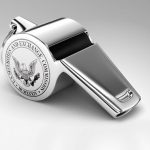 Section D asks whistleblowers to describe their complaints. Many of the questions in Section D are aimed at determining whether a particular whistleblower is eligible for an SEC award (even though Section E is technically the “eligibility” section). Importantly, almost all whistleblowers can become eligible for an award if certain steps are taken. This includes certain employees or contractors who may incorrectly assume they are not eligible for SEC awards, such as compliance personnel, auditors, directors, and officers (see Section D, part 5a). Even whistleblowers who had involvement in the fraud or misconduct can be eligible whistleblowers.
Section D asks whistleblowers to describe their complaints. Many of the questions in Section D are aimed at determining whether a particular whistleblower is eligible for an SEC award (even though Section E is technically the “eligibility” section). Importantly, almost all whistleblowers can become eligible for an award if certain steps are taken. This includes certain employees or contractors who may incorrectly assume they are not eligible for SEC awards, such as compliance personnel, auditors, directors, and officers (see Section D, part 5a). Even whistleblowers who had involvement in the fraud or misconduct can be eligible whistleblowers.
For example, external auditors are generally not eligible to receive SEC whistleblower awards, especially external auditors who obtained the information during the audit of an issuer. However, an exception in the rules allows external auditors to become eligible in these circumstances when they report the information to a superior in the independent public accounting firm and the audit firm fails to promptly report the information to the SEC. Under the rules, there are many exceptions like this that allow otherwise ineligible whistleblowers to become eligible when certain steps are taken.
Whistleblowers should consult with an experienced SEC whistleblower attorney to determine their eligibility, or whether they can become eligible, for SEC whistleblower awards. This determination could result in a multi-million-dollar whistleblower award or nothing.
Maximize Your Award by Filing an Effective TCR
 Many questions in Section D will also have an impact on a whistleblower’s future award percentage. Under the program, a whistleblower may receive an award of between 10-30 percent of the total sanctions imposed as a result of his or her tip. In order to maximize the percentage of a potential award, whistleblowers should evaluate the factors the SEC considers when determining an award percentage and stress these factors in their submissions. This analysis must happen before the whistleblower submits information to the SEC.
Many questions in Section D will also have an impact on a whistleblower’s future award percentage. Under the program, a whistleblower may receive an award of between 10-30 percent of the total sanctions imposed as a result of his or her tip. In order to maximize the percentage of a potential award, whistleblowers should evaluate the factors the SEC considers when determining an award percentage and stress these factors in their submissions. This analysis must happen before the whistleblower submits information to the SEC.
For example, Section D, part 5b asks whether the whistleblower “reported this violation to his or her supervisor, compliance office, whistleblower hotline, ombudsman, or any other available mechanism at the entity for reporting violations?” While this question is important for determining certain whistleblowers’ eligibility (e.g., 120-day exception), it may also impact a whistleblower’s award percentage. Per the SEC’s Final Rules, the whistleblower office may increase the amount of an award if the whistleblower “reported the possible securities violations through internal whistleblower, legal or compliance procedures before, or at the same time as, reporting them to the Commission.” As such, whistleblowers should strongly consider reporting internally to their company prior to reporting to the SEC. After reporting internally, however, whistleblowers are also incentivized to report to the SEC as soon as possible.
As another example of how to maximize a potential award, Section D, part 12 asks the whistleblower to provide “any additional information you think may be relevant.” This section offers whistleblowers an opportunity to identify and emphasize other aspects of the claim that support an increased award percentage. For example, the SEC may issue a larger award to a whistleblower who experienced any “unique hardships…as a result of his or her reporting and assisting in the enforcement action.” This may include discussion on any retaliation the whistleblower experienced or perhaps the personal risks the whistleblower took in order to expose the fraud. See Rule 21F-6(a)(2)(vi). Again, whistleblowers should consider these factors prior to submitting a tip to the SEC.
Identify the Securities Law Violations for the SEC
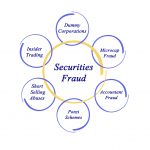 Section D, part 8 asks whistleblowers to explain why they believe the acts described “constitute a violation of the federal securities laws.” Whistleblowers should determine what violations qualify for an SEC award, and provide the SEC with a clear roadmap describing how the acts tie to specific violations.
Section D, part 8 asks whistleblowers to explain why they believe the acts described “constitute a violation of the federal securities laws.” Whistleblowers should determine what violations qualify for an SEC award, and provide the SEC with a clear roadmap describing how the acts tie to specific violations.
A whistleblower should also describe why these violations are material. Since 2011, whistleblowers have filed more than 54,000 tips with the SEC Whistleblower Office. The SEC will only invest its limited resources into the best tips. As such, whistleblowers should explain, in detail, why their tip warrants the SEC’s resources more than the thousands of other tips.
If a whistleblower is uncertain about a specific violation, he or she may benefit from reading prior SEC enforcement actions and consulting with an experienced SEC whistleblower attorney.
Provide Specific Evidence of the Violation in the TCR
 Section D, part 9 asks whistleblowers to “[d]escribe all supporting materials in the [their] possession and the availability and location of any additional supporting materials not in [their] possession.” The SEC Whistleblower Office is more likely to act on a tip if it is supported by strong evidence. This is evidence that is specific, timely and credible. For example, a whistleblower may provide documentation that walks the SEC through an example of the fraud step-by-step and explains how the fraud has a material impact on the entity or its investors.
Section D, part 9 asks whistleblowers to “[d]escribe all supporting materials in the [their] possession and the availability and location of any additional supporting materials not in [their] possession.” The SEC Whistleblower Office is more likely to act on a tip if it is supported by strong evidence. This is evidence that is specific, timely and credible. For example, a whistleblower may provide documentation that walks the SEC through an example of the fraud step-by-step and explains how the fraud has a material impact on the entity or its investors.
Notably, recent decisions have clarified the scope of company documents that a whistleblower may take to disclose fraud to the government. In Erhart v. Bofi Holdings, Judge Bashant held confidentiality agreements do not trump federal whistleblower rights and whistleblowers are permitted to take an “appropriate” amount of company documents to disclose fraud to the government. According to the order, a whistleblower’s evidence may be considered “appropriate” when it is carefully selected, specifically related to the violation, and accessible in the ordinary course of the employee’s duties. The judge warned, however, that “vast and indiscriminate” collection of company documents may not immunize the whistleblower from potential liability.
Finally, whistleblowers should not provide all types of evidence. For example, the SEC does not want information that may violate the company’s attorney-client privilege. If a whistleblower has questionable evidence, he or she should consult with an attorney and potentially notify the SEC to have its taint team handle the evidence.
Protect Your Identity When Submitting a TCR
 After providing a detailed explanation of the fraud and providing evidence to support it, whistleblowers should identify any information in the submission that could expose them as the whistleblower. Specifically, Section D, part 11, asks whistleblowers to “[i]dentify with particularity any documents or other information in your submission that you believe could reasonably be expected to reveal your identity and explain the basis for your belief that your identity would be revealed if the documents were disclosed to a third party.”
After providing a detailed explanation of the fraud and providing evidence to support it, whistleblowers should identify any information in the submission that could expose them as the whistleblower. Specifically, Section D, part 11, asks whistleblowers to “[i]dentify with particularity any documents or other information in your submission that you believe could reasonably be expected to reveal your identity and explain the basis for your belief that your identity would be revealed if the documents were disclosed to a third party.”
The SEC takes its responsibility to protect whistleblower’s identities very seriously. Whistleblowers can assist this effort by flagging any information that could point to them as the whistleblower. The SEC will then determine the best path to opening an investigation without tipping off the target that a whistleblower is involved.
Section F of the SEC Form TCR
 Whistleblowers should know that they must sign the Form TCR under the penalty of perjury. Specifically, Section F states: “I declare under penalty of perjury under the laws of the United States that the information contained herein is true, correct and complete to the best of my knowledge, information and belief. I fully understand that I may be subject to prosecution and ineligible for a whistleblower award if, in my submission of information, my other dealings with the SEC, or my dealings with another authority in connection with a related action, I knowingly and willfully make any false, fictitious, or fraudulent statements or representations, or use any false writing or document knowing that the writing or document contains any false, fictitious, or fraudulent statement or entry.”
Whistleblowers should know that they must sign the Form TCR under the penalty of perjury. Specifically, Section F states: “I declare under penalty of perjury under the laws of the United States that the information contained herein is true, correct and complete to the best of my knowledge, information and belief. I fully understand that I may be subject to prosecution and ineligible for a whistleblower award if, in my submission of information, my other dealings with the SEC, or my dealings with another authority in connection with a related action, I knowingly and willfully make any false, fictitious, or fraudulent statements or representations, or use any false writing or document knowing that the writing or document contains any false, fictitious, or fraudulent statement or entry.”
If a whistleblower submits their tip anonymously, the whistleblower’s attorney is required to keep the whistleblower’s signed declaration and it will not be included in the filing with the SEC. In these circumstances, only the attorney’s signature in Section G is required.
Click below to hear SEC whistleblower lawyer Matt Stock’s tips for SEC whistleblowers:
SEC Whistleblower Program: Process to Get an SEC Whistleblower Award
As discussed in our articles, the SEC whistleblower program has become a very effective enforcement tool for the SEC. But very few whistleblowers have received awards, which underscores the importance of having experienced counsel represent a whistleblower effectively at the SEC.
- MarketWatch: More than 33,000 tips, $2.5 billion in financial remedies and $500 million in awards to investors — the SEC’s whistleblower program turns 10 years old today
- Going Concern: Here Are 6 Reasons Why the SEC Whistleblower Program Is Successful
- National Law Review: 5 Ways that Experienced SEC Whistleblower Law Firms Can Effectively Advocate for Whistleblowers
- D&O Diary: How the SEC Whistleblower Program Has Changed Corporate Compliance and SEC Enforcement
- Forbes: One Billion Reasons Why The SEC Whistleblower-Reward Program Is Effective
Attorneys Representing Whistleblowers at the SEC
If you have questions about your SEC whistleblower claim, contact the SEC whistleblower attorneys at Zuckerman Law for a free, confidential consultation about your case by calling 202-262-8959. To learn more about the SEC Whistleblower Program, download Zuckerman Law’s eBook: SEC Whistleblower Program: Tips from SEC Whistleblower Attorneys to Maximize an SEC Whistleblower Award:
SEC Whistleblower Lawyers






A March 2022 order determining whistleblower award claims, Exchange Act Rel. No. 94398 (March 11, 2022) explains the reasons for the TCR requirement:
“The programmatic purposes of requiring whistleblowers to submit their information on Form TCR or through the online TCR portal include: allowing the Commission to promptly determine whether an individual who submits information is subject to heightened whistleblower confidentiality protections; helping the staff efficiently process the information and other documentation provided by the individual and assess its potential credibility; and assisting the Commission in eventually evaluating the individual’s potential entitlement to an award. Also, by submitting a tip on Form TCR, the submitter declares under penalty of perjury that the information is true and correct to the best of the submitter’s knowledge and belief. A tip that bypasses the TCR System may not contain the sworn declaration under penalty of perjury as to the veracity of the information.”
The September 2020 SEC release (Release No. 34-89963) adopting amendments to the rules governing the SEC Whistleblower Program explains the rationale for requiring whistlebowers to file TCRs and the express waiver authority that permits an otherwise clearly meritorious whistleblower who failed to comply with Rule 21F-9(a) and (b) within 30 days of first providing original information to the Commission to nonetheless obtain an award provided that the individual complied with those requirements within 30 days of first learning of them:
After considering the comments, we are adopting the final rule as proposed with several important substantive modifications to paragraph (e). First, we are clarifying that an individual need not in the first instance provide original information to the Commission in accordance with the procedures in Rule 21F-9(a) and (b), but may instead provide original information in a different manner, provided that the individual complies with Rule 21F-9(a) and (b) within 30 days of first providing that original information. Second, we are permitting an individual who fails to satisfy these procedural requirements to qualify for a waiver if the individual can demonstrate that he or she complied with Rule 21F-9(a) and (b) within 30 days of first learning about the requirements. Third, we are making this waiver automatic when the criteria specified in the rule are satisfied. Fourth, we have revised the language of the proposed rule to require that the Commission must be able to “readily” determine that the administrative record ““unambiguously”–rather than “clearly and convincingly”–demonstrates that the claimant would otherwise qualify for an award in order for us to grant a waiver of noncompliance.250
Since the whistleblower rules were implemented in 2011, the Commission has required any individual seeking an award and/or the confidentiality protections of the program to submit a tip through the Commission’s online portal or by submitting a Form-TCR by mail or fax.251 The requirement to file a TCR has been a necessary initial step for an individual to obtain treatment as a ““whistleblower” under our rules252 and, in our experience, has proved beneficial to the effective administration of our whistleblower program. Accordingly, the Commission has treated the failure to file a properly executed TCR as grounds for denial of a claim for award.253 Thus, paragraph 9(e) as proposed would not have created a new obligation for potential whistleblowers; rather, it was intended to clarify the Commission’s existing approach when making award determinations–when an individual provides information to the Commission that he or she will rely upon as a basis for claiming an award, the information should be provided initially in accordance with Rule 21F-9(a) and (b). We view this clarification of the importance of the Commission’s TCR-filing requirement as merely a codification of current practice–i.e., whistleblowers must comply with the procedures for submitting their information in order to later be eligible for a potential award. Moreover, the Commission’s experience with the program to date demonstrates in our view that the procedures for submitting information to the Commission to qualify for an award–including those specified in Rule 21F-9(e)–do not create unrealistic or onerous reporting procedures for potential whistleblowers and that any burdens on the public are outweighed by the administrative efficiencies to the program and the agency.
That said, we have not applied these procedural requirements rigidly and have through our practice permitted whistleblowers to “perfect” their submissions of original information by complying with the requirements of Rule 21F-9(a) and (b) for a brief period of time from the date they first provide the information to the Commission. This practice of permitting individuals to perfect their submission has grown out of our recognition of the practical realities of how whistleblowers or their counsel may first relay information to the Commission. Based on our historical practice, and our consideration of the comments that we have received on proposed paragraph (e), we have modified the rule to expressly provide that an individual’s first contact with the Commission need not be in the form of a TCR with an accompanying declaration. Rather, to qualify for a potential award under the rule we are adopting, an individual need only submit the TCR and declaration within 30 days of first providing that information to the Commission. As modified from the proposed rule, paragraph (e) now fully captures the current practice that we have found both beneficial to the agency’s administration of the program and practicable for individuals to follow without imposing unnecessary burdens on them.
We view the new express waiver authority as an important mechanism to protect the ability of these individuals to obtain an award notwithstanding their untimely compliance with Rule 21F-9(a) and (b). Specifically, the new express waiver authority will permit an otherwise clearly meritorious whistleblower who failed to comply with Rule 21F-9(a) and (b) within 30 days of first providing original information to the Commission to nonetheless obtain an award provided that the individual complied with those requirements within 30 days of first learning of them and the Commission can readily develop an administrative record that unambiguously demonstrates that the individual would otherwise merit an award, without a significant expenditure of staff time and resources to do so. Significantly, our rules currently do not provide any established mechanism to permit individuals who fail to comply with the TCR requirement (including the requirement to provide a signed declaration) to qualify for an award with respect to information they provide to the Commission prior to filing a TCR (and signed declaration). New Rule 21F-9(e) now provides that mechanism. In determining whether the new waiver authority applies, the Commission will consider that any whistleblower represented by counsel has constructive notice254 of the requirements of Rule 21F-9(a) and (b) as of the date counsel was retained.
Although we recognize that some commenters have challenged the long-standing requirement that whistleblowers should file their original information on a TCR in order to obtain an award based on that information, the policy grounds for this requirement are sound. The Commission has strived to ensure that (1) all TCRs are collected in one central place; (2) the TCR data is combined with other public and confidential information on the persons and entities identified in the TCRs, and (3) investigative resources are dedicated to the TCRs presenting the greatest threat of investor harm. We understand that some whistleblowers may choose to contact staff directly to share information about a suspected violation of the securities laws. However, we do not view such outreach as satisfying or obviating the requirement to file a TCR. Indeed, there are important reasons for requiring the timely submission of a TCR (and an accompanying declaration) which benefit both the whistleblower and the Commission’s programmatic interests.
First, these requirements ensure that the agency has an accurate record of the information a potential whistleblower deems important to the Commission’s enforcement efforts instead of relying on Commission staff to file a TCR summarizing the individual’s information. Without this safeguard, disputes may arise as to what information an individual actually provided in the initial contact with Commission staff and when the information was submitted to the TCR system. Second, the requirement to file a TCR at the outset of the information-sharing process provides a clear indication to staff that the submitter is seeking the heightened confidentiality protections that are afforded by Section 21F(h)(2) of the Exchange Act;255 it is important that submitters make this clear up front in this manner because it alerts the staff about the extent to which it may (or may not) reveal the submitter’s information to third parties, including other government agencies, and it also determines whether other government agencies are themselves subject to the heightened confidentiality requirements of Section 21F(h)(2).256Third, the TCR requirement memorializes the timing of a whistleblower’s provision of information, which is especially important if a subsequent whistleblower provides similar information or if the whistleblower seeks the program’s confidentiality and/or retaliation protections. Fourth, the TCR requirement allows the Commission to manage and track “the thousands of tips that it receives annually and to connect tips to each other so as to make better use of the information provided…”257 The accompanying declaration requirement helps deter individuals from submitting false tips that result in the inefficient use of the Commission’s resources.258 We find it significant that Section 21F provides that an individual “shall” be denied an award if he or she fails to submit information to the Commission in the form and manner required–a strong signal of congressional intent that individuals seeking an award must follow the procedures that the Commission establishes for submitting information.259
Notwithstanding the foregoing, the changes that we have expressly incorporated into paragraph (e) will afford an opportunity for individuals who first come to the Commission with original information without complying with Rule 21F-9(a) and (b) to perfect their submissions and thus potentially qualify for an award. Specifically, in those instances when an individual first provides information to the Commission without complying with Rule 21F-9(a) and 9(b), the following mechanisms will now be available: (1) the individual can perfect his or her submission by complying with those rules within 30 days of first providing original information to the Commission;260 (2) after 30 days of first providing original information to the Commission, the individual may still qualify for a waiver from having failed to timely comply with Rule 21F-9(a) and (b) if the individual can demonstrate that he or she complied with these procedural requirements within 30 days of first learning about them261 and the Commission can readily develop an administrative record that unambiguously demonstrates that the individual would otherwise merit an award, without a significant expenditure of staff time and resources to do so. As compared with the proposed rule, we have determined to make the waiver of non-compliance with Rule 21F-9(a) and (b) automatic, rather than discretionary, when the Commission finds that the whistleblower has established that the conditions for the waiver are satisfied. Further, we have determined to provide for such a waiver opportunity from the time when the individual first learns of the Rule 21F-9(a) and (b) requirements rather than establishing a fixed deadline calculated from when the original information is first submitted.
Based on the suggestion of a commenter, we have eliminated the phrase ““clearly and convincingly” and replaced it with the terms “readily” and ““unambiguously” in order to avoid confusion and any suggestion that we intended to incorporate into our practice under paragraph 9(e) other areas of law that may require proof by “clear and convincing” evidence. That said, it would be harmful to the effective and efficient administration of our whistleblower program to broadly waive non-compliance with the TCR-filing requirement for non-meritorious claimants or claimants whose entitlement to an award is not clearly established by the administrative record, and we also believe that doing so would be inconsistent with the congressional directive that individuals “shall” comply with the Commission’s procedures for submitting information.262 In adopting this provision for situations where the record “unambiguously” demonstrates that an individual would otherwise qualify for an award (and the record can “readily” be developed to confirm this without a significant expenditure of staff time and resources to do so), we intend the exception to be available only where a clear case exists that the claimant otherwise merits an award, and the claimant submitted his or her TCR and declaration as required by Rule 21F-9(a) and 9(b) within 30 days of first learning about those requirements.263 That said, the Commission continues to retain its separate discretionary exemptive authorities under Rule 21F-8(a) and Exchange Act Section 36(a) for circumstances that may warrant exemptive relief.264
Finally, we have determined not to adopt the recommendation discussed above from several commenters that the Commission afford an unlimited opportunity for any individual that might otherwise qualify as a meritorious whistleblower to comply with the procedural requirements of Rule 21F-9(a) and (b). That standard would generate additional inefficiencies in the program by requiring the Commission in all cases to develop a comprehensive record detailing whether a claimant was in fact meritorious before deciding whether the claimant should be excused from the filing obligation. This would be particularly burdensome because there may be no clear documentation as to when and with whom on the staff a claimant spoke–or what was conveyed–before filing a TCR and officially becoming a whistleblower potentially eligible for an award. For this reason, we believe that it is appropriate to limit the exception for untimely compliance with Rule 21F-9(a) and (b) to those claimants whom the Commission can readily determine would otherwise clearly qualify as meritorious whistleblowers without a significant expenditure of staff time and resources to do so. In our view, this approach strikes an appropriate balance–ensuring that individuals who would clearly obtain an award but for their untimely compliance will in fact receive an award (provided they comply with the 30-day period in paragraph (e)), while not imposing new and undue burdens on the program to develop comprehensive records in cases involving claimants who would not be clearly entitled to an award (thereby preventing the diversion of staff time and resources from cases involving meritorious whistleblowers who did in fact adhere to the filing requirements of Rule 21F-9).

